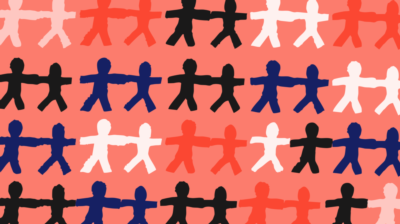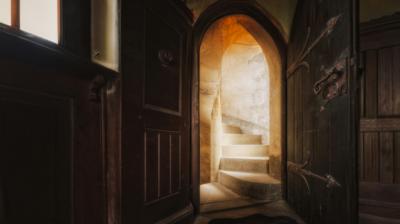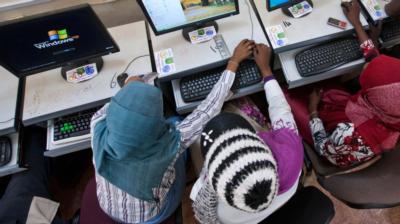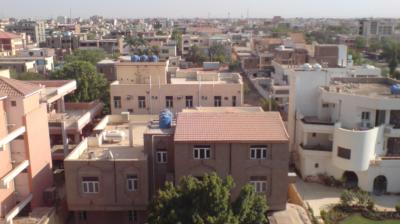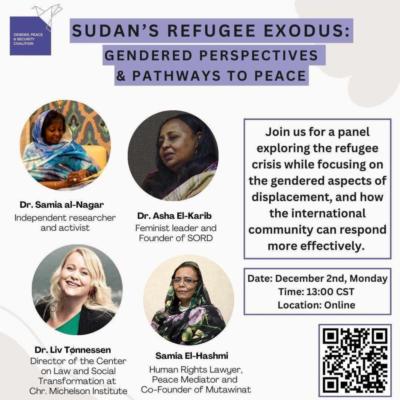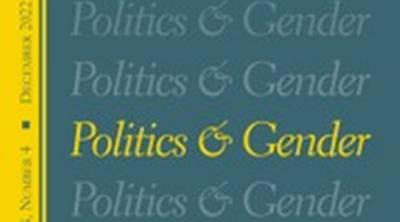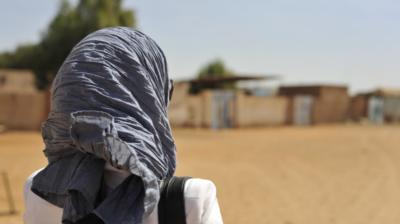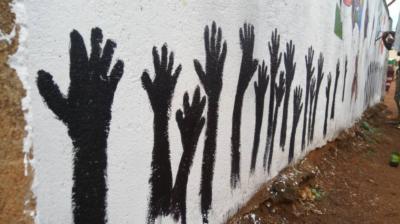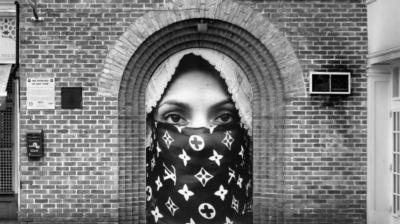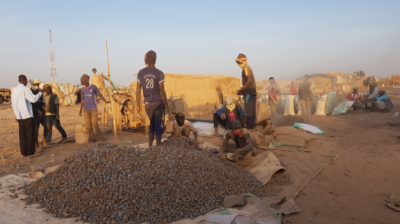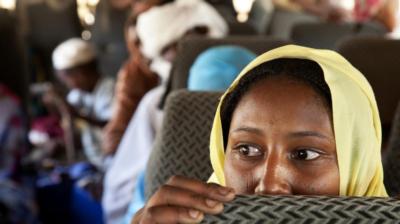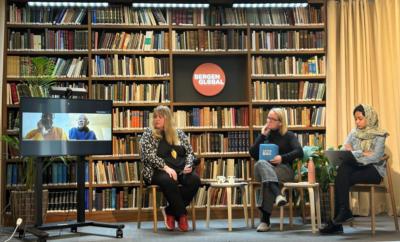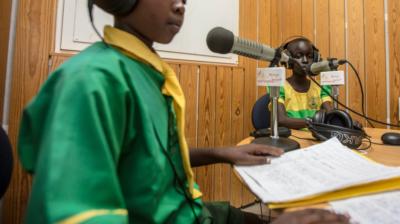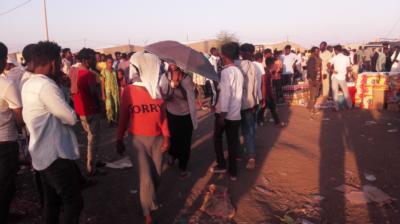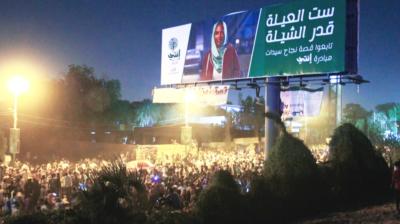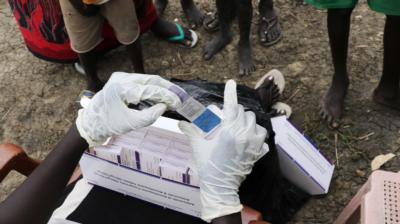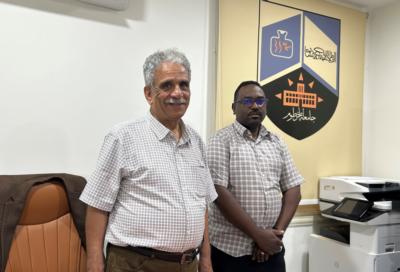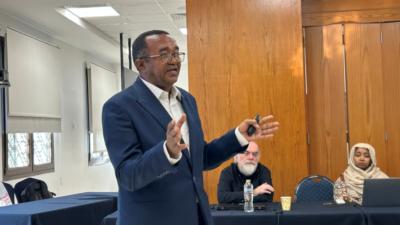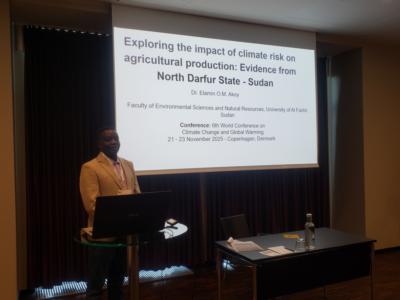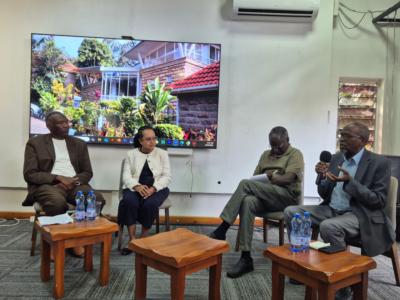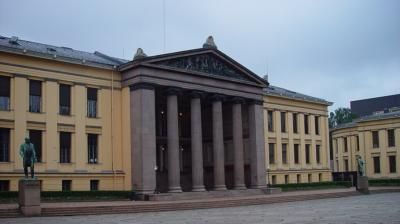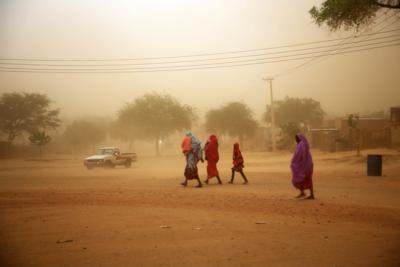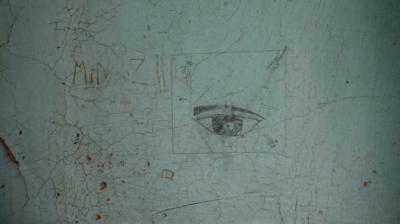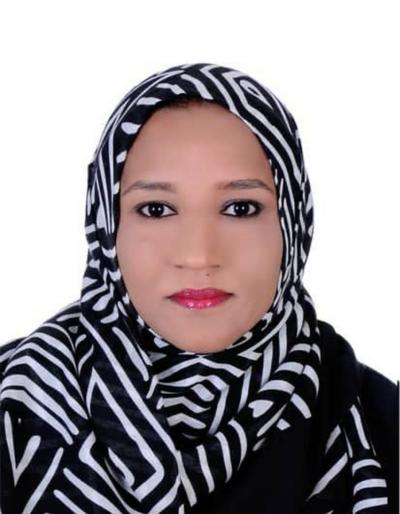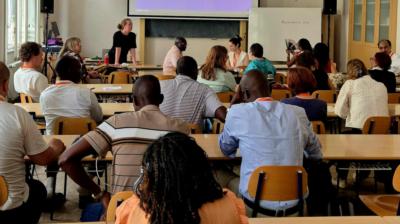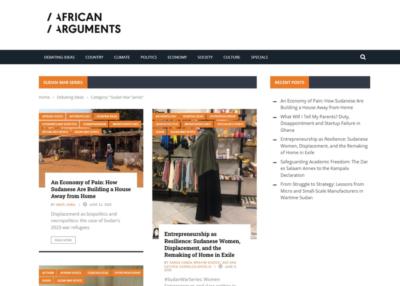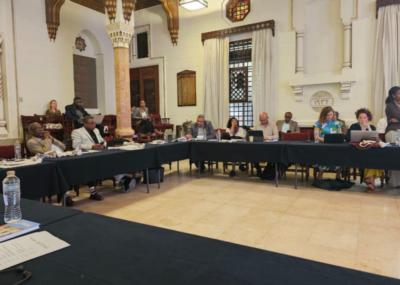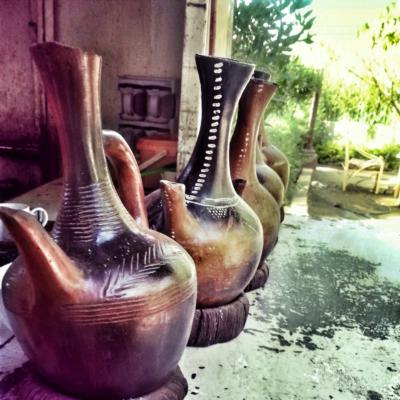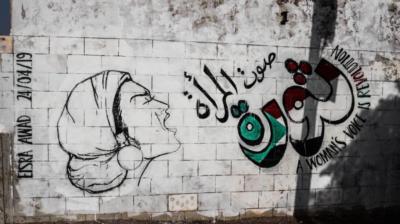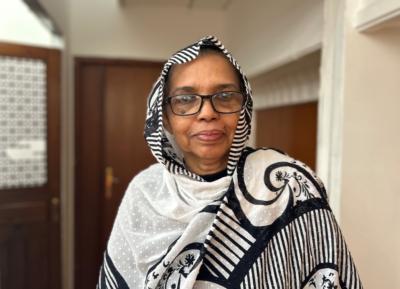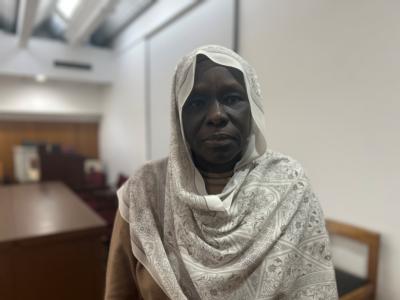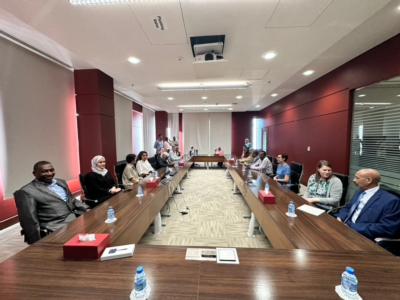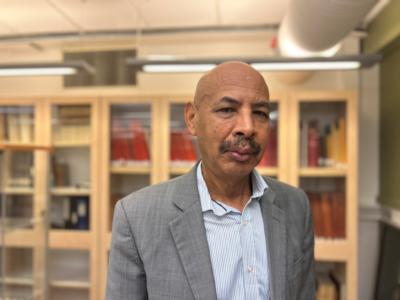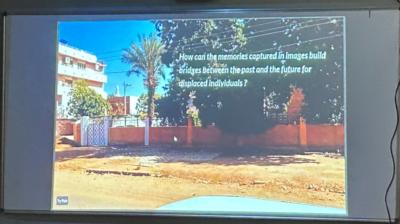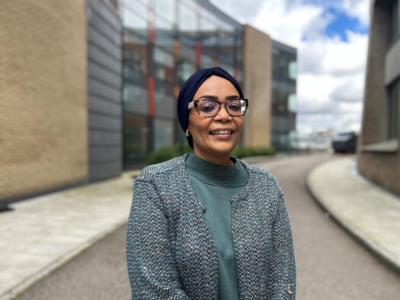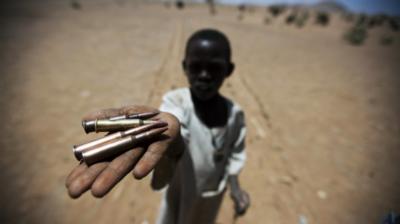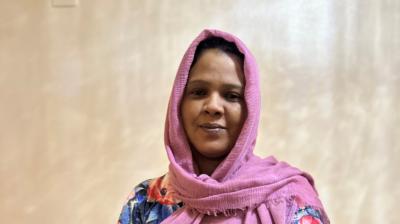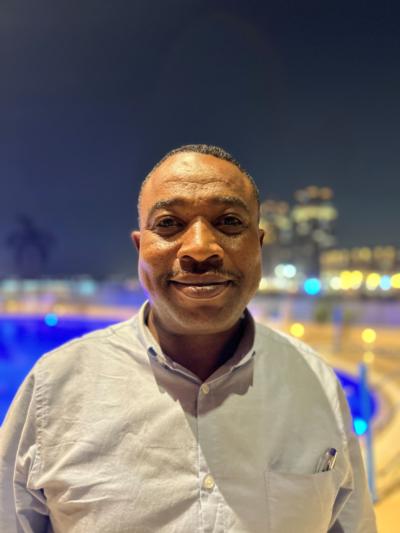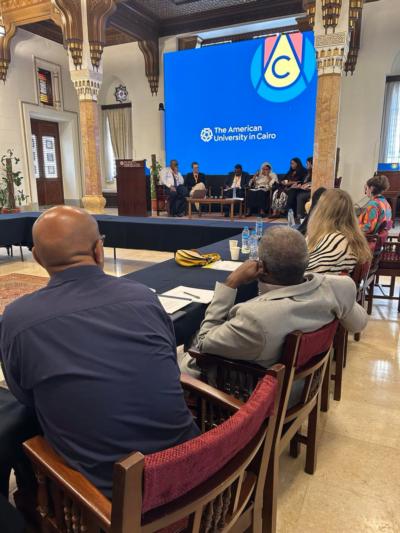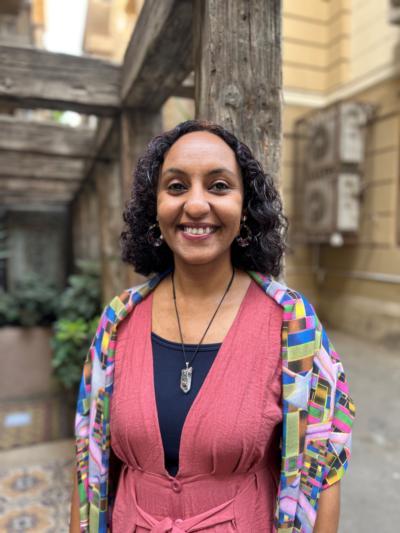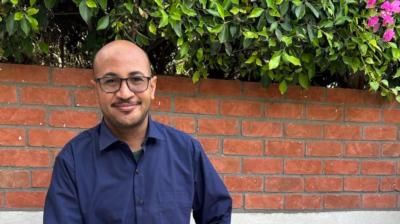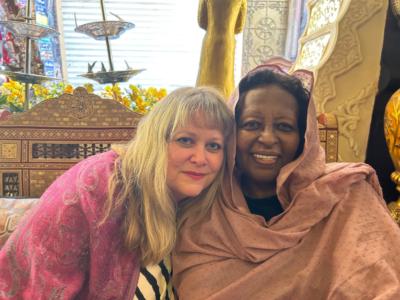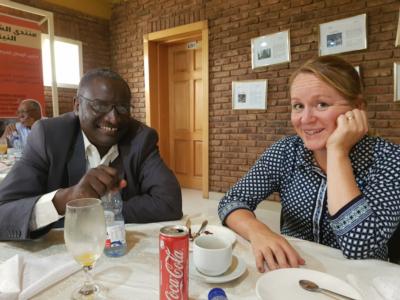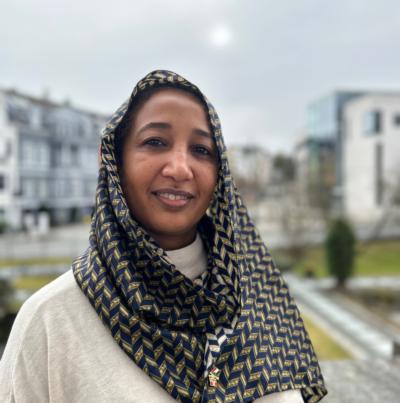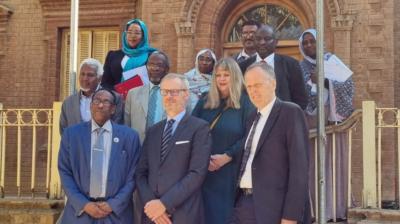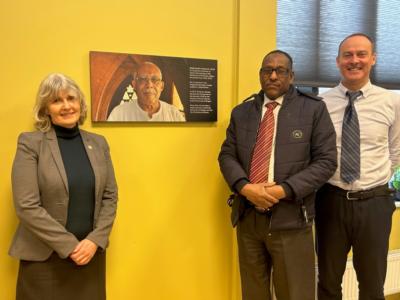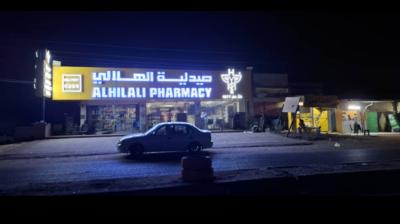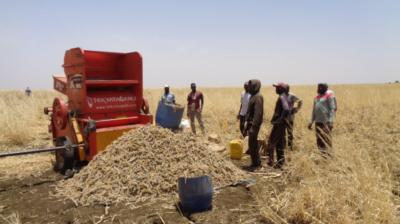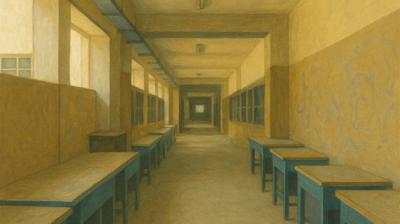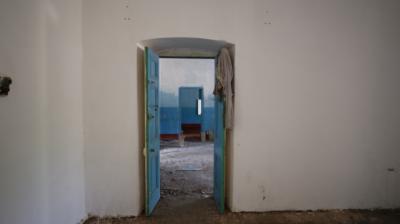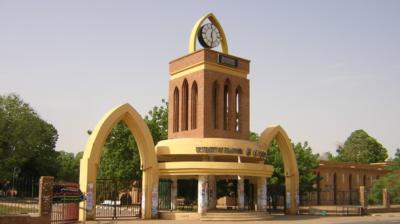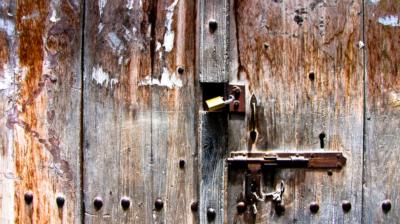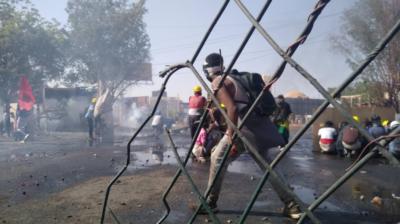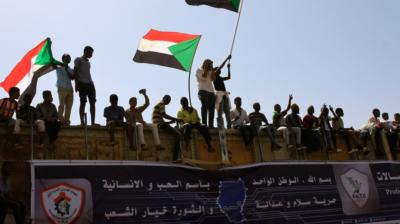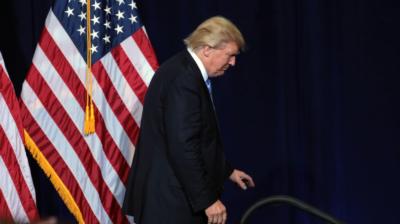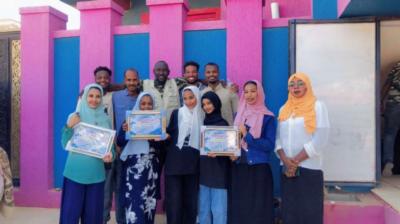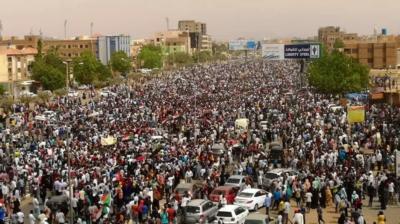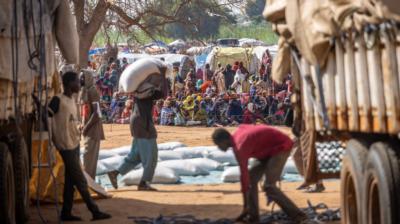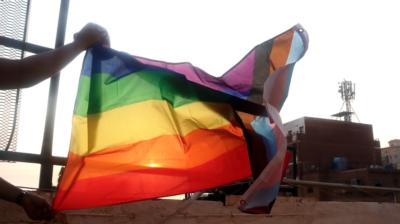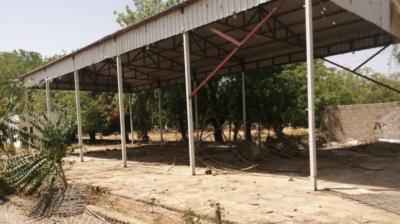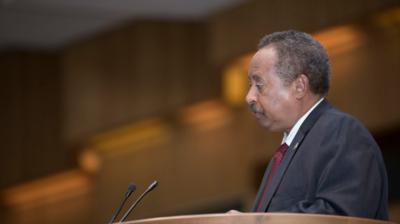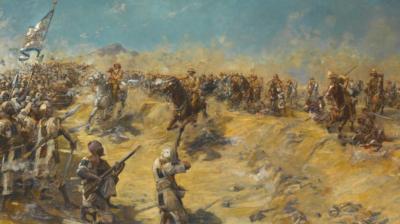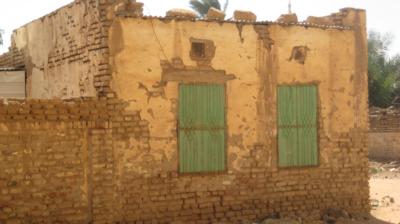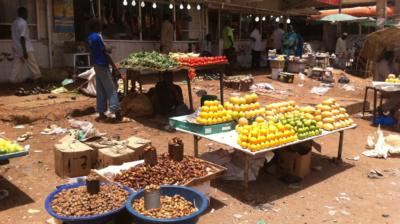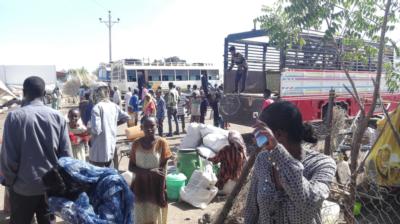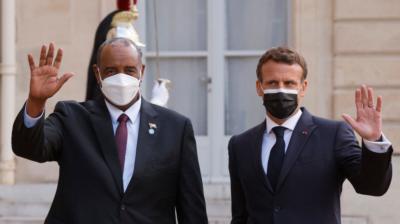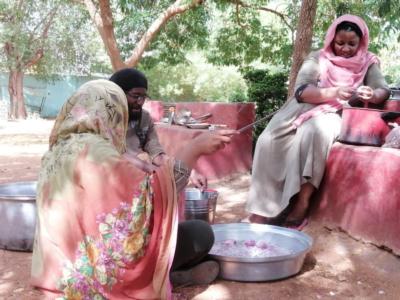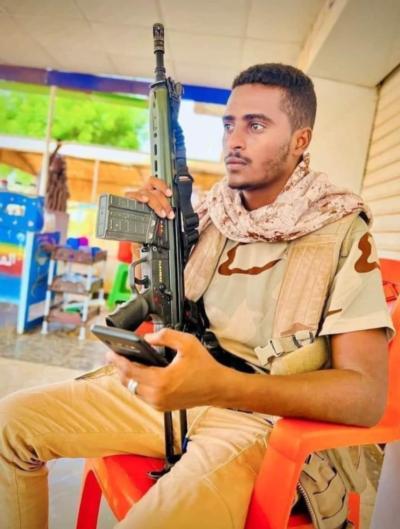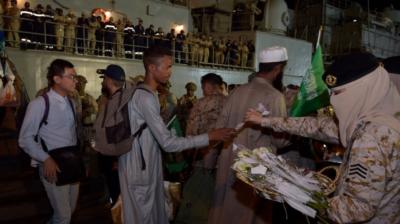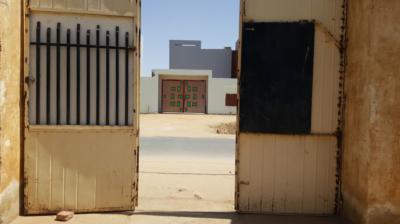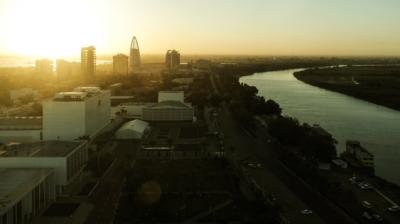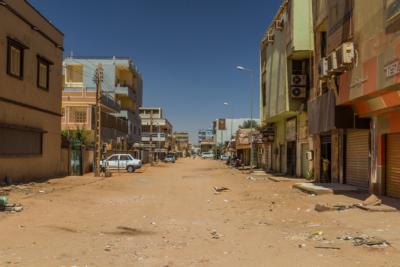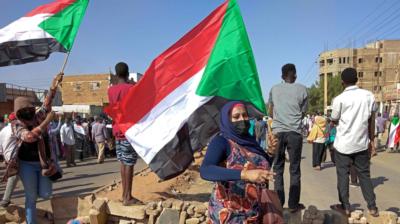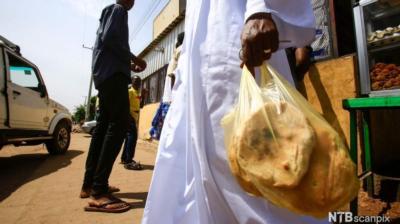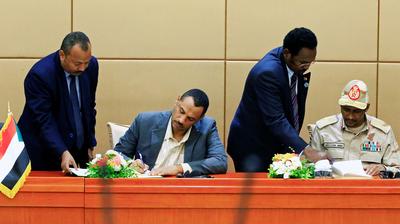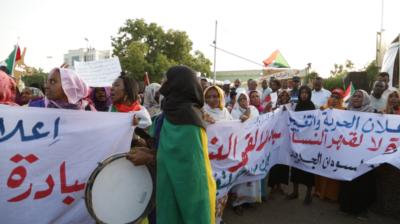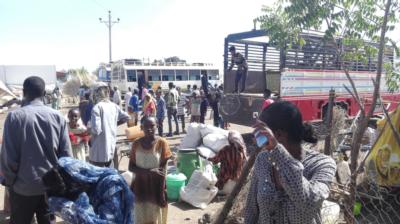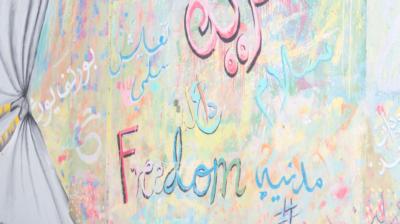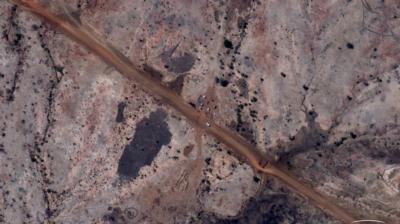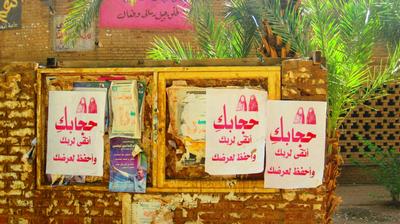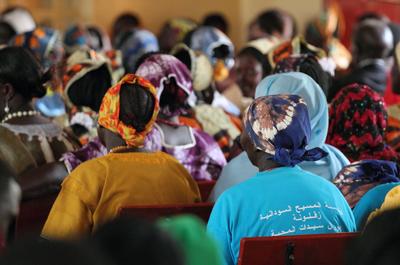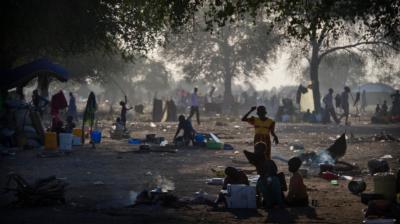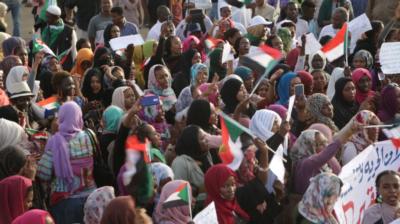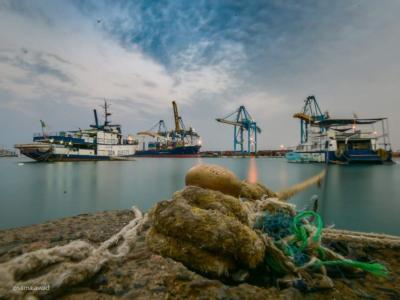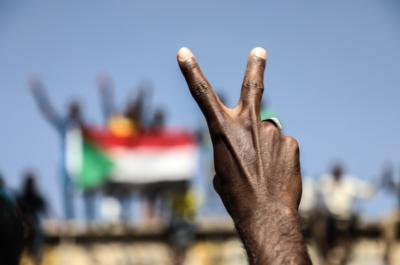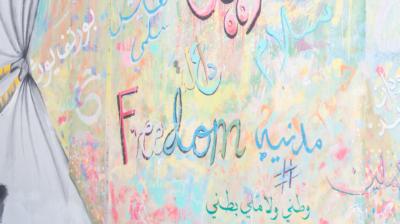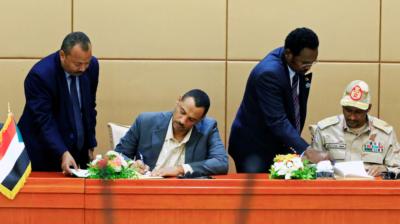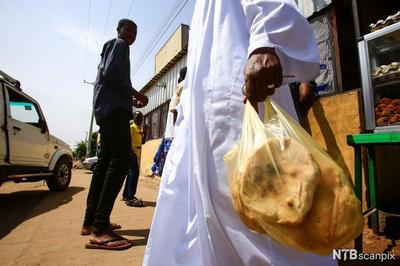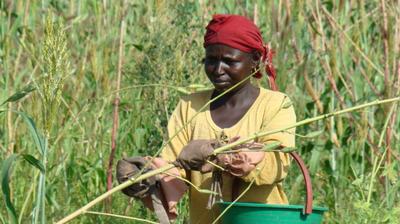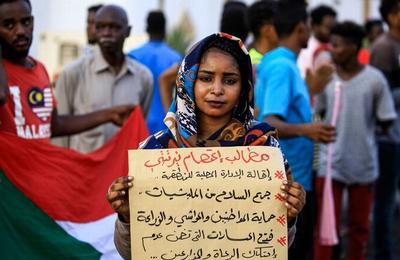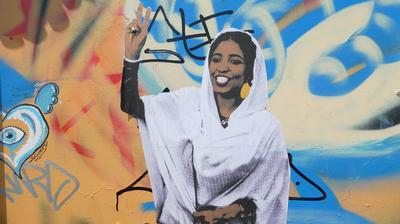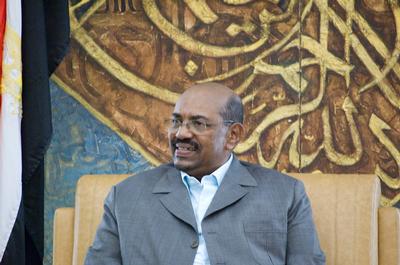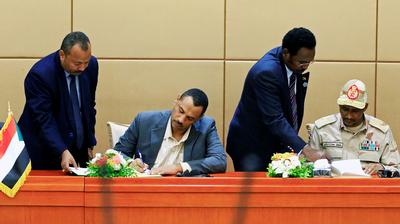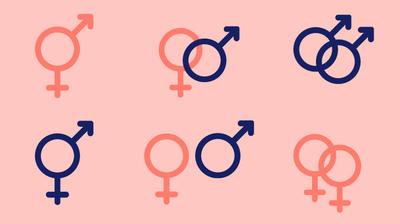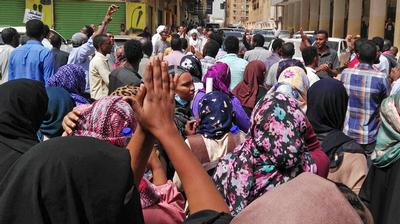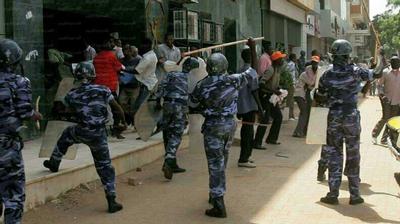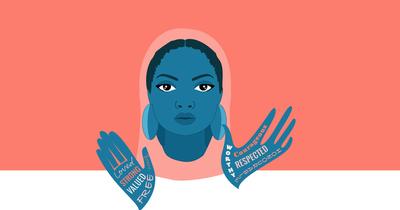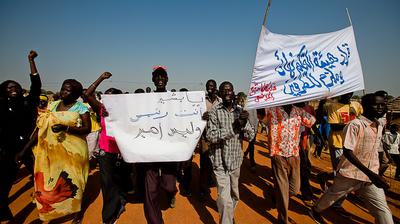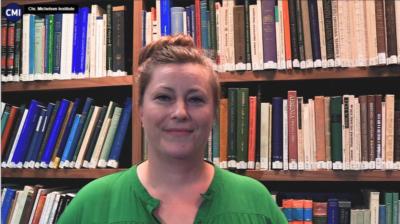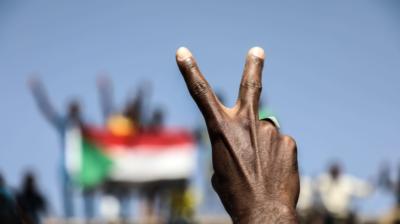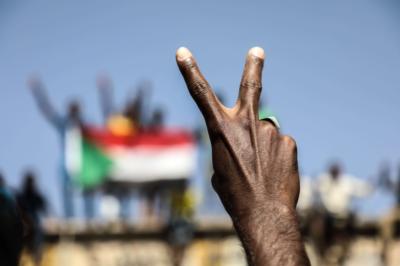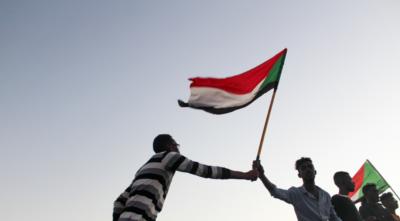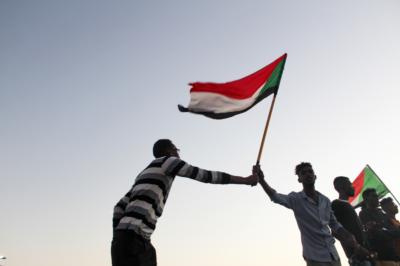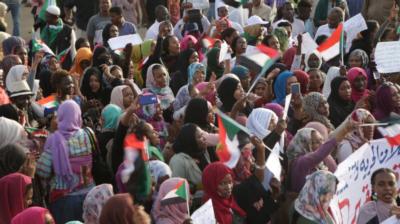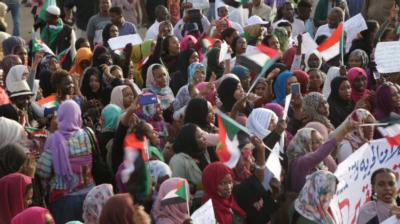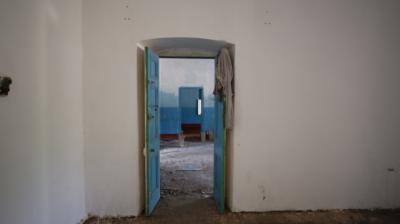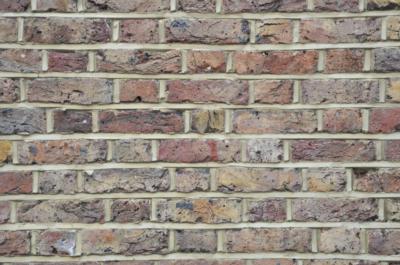This project is a collaboration between Sudanese and Norwegian academic institutions. We aim to contribute to high quality research and policy development on current challenges facing Sudan.

The Sudan-Norway Academic Cooperation (SNAC) builds on 60 years of close cooperation and partnership between scholars and research institutions in Sudan and in Bergen, Norway. As the SNAC project was about to start, war broke out in Sudan and throughout 2023 all higher research institutions in the country are closed, making it challenging to carry out the work in bringing about the project objectives in the way we had planned and thrive on. With many of our Sudanese colleagues at risk and many having fled the country, we have had to readjust the project in ways where we can stand in solidarity with our colleagues. An important step is to offer scholarships and research funds to Sudanese scholars who now find themselves in a vulnerable and precarious situation because of the war and to center Sudanese perspectives in the academic and policy discourses about Sudan. We are carrying out activities in Sudan to the extent that it is possible, but also targeting displaced Sudanese scholars in neighbouring countries to Sudan through collaboration with academic institutions and NGOs in these coutnries.
Project Objectives
In the SNAC project, we have a particular focus on enabling academic institutions to play a vital role in addressing the challenges currently facing Sudan. The country is now in a precarious political state and deep economic crisis. To get the transition to democracy back on track it is more important than ever that Sudanese scholars in Sudan are equipped to actively participate in the national and international academic and policy discourses about their own country. We aim to bring their voices to the forefront of the policy discourse.
We will do this by conducting high-quality collaborative research, co-design training courses, co-supervise students and co-publish on current challenges facing Sudan. The overall goal is to enable academic institutions to play a vital role in addressing these challenges.
The current challenges tackled in the project are:
- Climate change and food security
- Gender, peace, and security
- Migration, borderland dynamics and refugees
- Peace, democracy and the role of youth.
Approach
Our approach is based on principles of mutual learning and knowledge exchanges between Norway and Sudan and within and among academic institutions in Sudan.
SNAC aims to:
- Increase research expertise
- Conduct more and higher-quality collaborative research on Sudan and
- Strengthen partnerships and dialogue with key stakeholders through evidence-based and targeted communication.
Throughout all activities the project targets university staff in marginalized areas (regional universities) and groups (women and youth) in Sudan. We choose this approach because historical processes of disempowerment have marginalized these groups to a greater extent. This is reflected in the underrepresentation of these groups in national and international academic discourses, publishing outlets and policy forums on Sudan. Indeed, the inclusion of regional perspectives, and the viewpoint of women and youth who often find themselves outside of existing power structures, is key to a fruitful way forward from the current political and economic crisis. A central principle of the project, therefore, is to center the deep empirical insights possessed by university staff and students at regional universities and young and female researchers and students in knowledge exchanges and mutual learning processes.
Publications

Sudan’s protesters built networks to fight a tyrant – today they save lives in a war

Leveraging FDI for peacebuilding: evidence from youth employment dynamics in Sudan
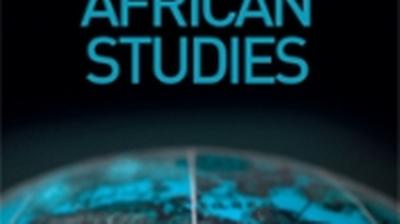
Political togetherness: pursuits for change among the protesting youth in Sudan 2018–2022

Nothing will ever be the same: the growing generation gap in South Kordofan state, Sudan (2022–2024)

To What Extent Civilians are “Civilian”? Unpacking the Dynamics of Contentious Politics in Sudan Wars
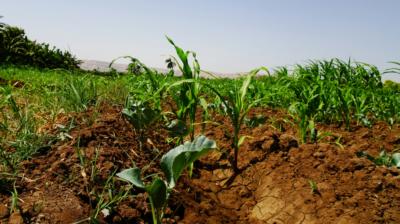
Climate Change, Conflicts and Food Security in North Darfur State, Sudan: Risks and Implications

“They do not look at us as others”: capital and identity among Sudanese refugees in Kampala

Rubble Investments: the blocked, broken, and redirected flows of capital from Sudan

Forcibly Displaced Sudanese Women Navigating Loss, Reconstructing Identity, and Reconfiguring Gender Relations

The Role of FDI in Boosting Peacebuilding in Sudan via Promoting Youth Employability

Prospects of implementation of the Women, Peace, and Security agenda in Sudan

Rubble Investments: the blocked, broken, and redirected flows of capital from Sudan
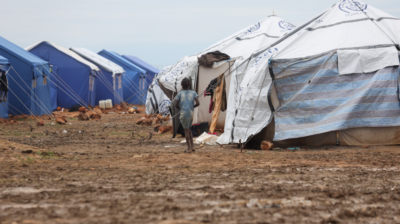
When Refuge is Home: Sudan’s war-affected IDPs in Gedarif State, Eastern Sudan

Working with the collections of Arabic manuscripts from Sudan at University of Bergen

Unexpectedly Sudanese Syrians: Issuing passports and the challenges of integration

Book Salon: (Un)Doing Resistance: Authoritarianism and attacks on the arts in Sudan’s 30 years of Islamist Rule

Sticky borders: gendered border regimes and their impact on Sudanese masculinity in displacement

Sudanese women in displacement: Reflections on the production of refugees

War in Sudan: Women’s Struggle with the Loss/Shrinking of their Private Spaces

Gendered and classed livelihood strategies among recently displaced Sudanese women

The Sudanese Perception of Legal Status in Displacement and Coping Strategies for Dealing with Difficulties

Pastoralist Mobility among the Sudanese Ethiopian Borderland : Towards Cooperative Land Management

Rights VS Privilege: on labor migration as ad-hoc refugee management in the GCC

Women, Protest and Backlash: Igniting Feminist Mobilization in Sudan

War in the Sudan: What did we learn, and what did we not learn from history?

Mutual Aid, Resistance and international engagement and response to the Sudan Crisis

Dividing the divided: The April 15 war and social polarization in Sudan
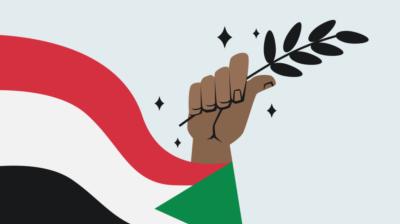
A Regional Insight into Sudanese Women’s Participation in the December Revolution
Publications from previous project phases:

Forging the Juba Peace Agreement: the role of national, regional and international actors

Sudanese Women’s Demands for Freedom, Peace, and Justice in the 2019 Revolution

Endå ein krig på Afrikas Horn? Den gamle grensestriden mellom Sudan og Etiopia er brennheit igjen

Pastoral Fulbe Women migration to Sinja town in Sudan: causes, entry points and implications
News
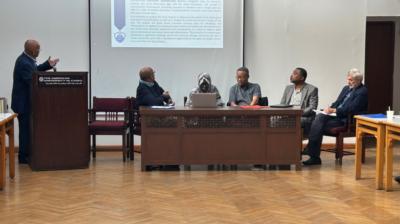
Workshop on higher education in Sudan
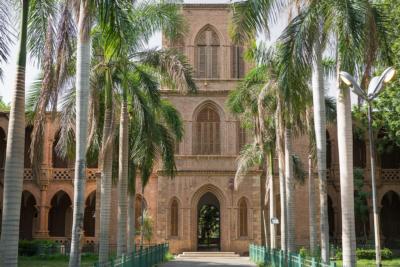
60 years of Bonds and Beyond: Academic collaboration between Bergen and Khartoum
Sudanese Perspectives
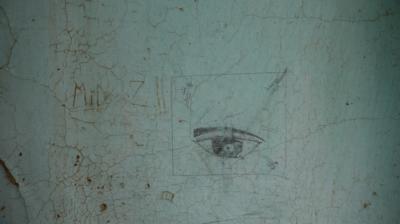
Scared, but still trying: stories of women activists working for peace in conflict areas in Sudan
Blog posts from previous project phases:
Project Team
Management Team
Tamer Abdelkareem
Lecturer, cluster leader
Sociology and Social Anthropology, University of Khartoum
Dr. Tamer Abdelkareem is Lecturer at the department of Sociology and Social Anthropology, University of Khartoum.
Anne K. Bang is professor of Middle Eastern and African Islamic history at UiB.
She has published widely on Islamic intellectual exchanges in the Indian Ocean, and particularly on coastal East Africa. She has also led several projects to bring scriptural sources on this history to wider attention.
Clusters
Climate change and food security
Gidske Leknæs Andersen
Associate professor, cluster leader
UiB
Gidske L. Andersen is an Associate Professor of Geography (Remote sensing, GIS and cartography) at University of Bergen. Her background is from botanical ecology and her doctorate covered long-term vegetation dynamics in the arid landscapes of north-east Africa. She has broad experience in working interdisciplinary in the context of cultural landscapes and with extensive fieldwork in Egypt and Sudan. She has for many years taught GIS, Remote sensing and cartography. Andersen's research interests include environmental monitoring using geospatial data in combination with field work, climatic and anthropogenic effects on ecosystems, ecosystem's resilience, traditional knowledge and environmental management.
Mohammed Elhaj Mustafa Ali
Assistant Professor, cluster leader
University of Khartoum
Dr. Mohammed Elhaj Mustafa Ali is assistant professor at the Development Studies and Research Institute (DSRI), University of Khartoum, Sudan. Before, he was the Head of the Department of Economics at the Faculty of Economics and Administrative Sciences, University of Kassala, Sudan. He received his Ph.D. in Economics from the Faculty of Economics and Rural Development, University of Gezira, Sudan in 2016. In 2009, Mustafa received his M.Sc. in Economics from Faculty of Economics and Administration, University Malaya, Malaysia. In 2001 he was awarded a B.Sc. (honors) in Economics from Faculty of Economic and Social Studies, University of Khartoum. His particular fields of specialization are in the areas of Macroeconomics, Microeconomics, Health Economics, Labor Economics, Development Economics, and International Economics. He has published in nationally and internationally refereed journals.
Nils Anfinset
Professor
University of Bergen
Nils Anfinset is Professor of Archaeology at the University Museum, University of Bergen. Anfinset has broad archaeological experience from Palestine, Nepal, Tanzania, Syria, Palestine, Austria and Norway. His doctorate covered Sudan, Egypt and Palestine in the 4th millennium BC on nomads and metallurgy. He has for many years taught archaeology at the University of Bergen, as well as the University of Oslo, Birzeit University and Innsbruck Universität Innsbruck. Anfinset's research interests include the Late Stone Age, the Bronze Age, cultural heritage management in an international context, research ethics, nomadism, early metallurgy and the development of political economy. He is currently Vice Dean of the University Museum, and a member of the Cultural Environment Act Committee.
Olena Dubovyk
Professor
University of Bergen
Olena Dubovyk is a Professor of Physical Geography and Remote Sensing at the University of Hamburg in Germany and an adjunct professor of Remote Sensing and GIS at the University of Bergen in Norway. Her research focuses on the application of Remote Sensing and geospatial data analysis for environmental monitoring and land surface management, aiming to support the sustainable use of Earth's valuable resources. She conducts extensive research across Africa and Europe, with a particular emphasis on advancing methods for land surface monitoring and environmental management.
Lene Synnøve Halvorsen
Head engineer
University of Bergen
Lene Synnøve Halvorsen, cand.scient. in biology with specialization in palynology from UiB. She has worked with vegetation history (palynology/pollen analysis and archaeobotany), mostly on projects connected to Cultural Heritage Management for over 20 years.
Kari Loe Hjelle
Director
University Museum of Bergen
Kari Loe Hjelle is Director at the University Museum of Bergen and dean at the University of Bergen. Her work focuses on pollen analysis, cultural landscape development and agricultural history.
Hussein Sulieman
Professor, cluster leader
University of Gadarif
Hussein Sulieman is professor at the University of Gadarif and Director of the Centre for Remote Sensing and Geographical Information Systems. He is also a visiting fellow at Tufts University (USA). His main research interests intersect the domains of socio‐spatial analysis of land and environmental changes to understand the interaction of human activities and natural environment.
Gender, peace, and security
Hanaa Ibrahim
Lecturer, cluster leader
Blue Nile University
Hanaa Ibrahim is a lecturer at the Blue Nile University and works with the Peace Studies Centre. She is one of the founders of the Mother of Sudan initiative. Ibrahim has extensive expereince giving courses in how to deal with gender-based violence.
Sharifa Bamkar
Researcher, cluster leader
Red Sea University
Sharifa Bamkar is cluster leader for the topic Gender, peace, and security, representing the Red Sea University. She has extensive work experience from NGOs focusing on women's rights, and has for example worked for Oxfam's regional office in Port Sudan.
For the past years, she has worked as a researcher at the Women’s Study Center at the Red Sea University in Sudan
Senior advisor/programme director Department of Global Health
Norwegian Institute of Public Health
Since August 2016, Ragnhild has been Associate Professor of psychology at HIOA s. She has her degree from the Universities of Oslo and Tromsø. Before she started working as a Professor, she was Director of the Education and Research Department at Norad and Deputy Head of Mission at the Norwegian Embassy in Vietnam.
Unni Marie Gulla Heltne
Senior adviser
University of Bergen
Heltne is a clinical psychologist and special adviser at the Centre for Crisis Psychology at the University of Bergen. Her work focuses on trauma in conflict settings.
Samia Al Nagar
Researcher, cluster leader
Samia al-Nagar is an independent researcher and feminist. She has a PhD in Anthropology from University of Khartoum and has previously worked for multiple UN agencies and as a lecturer at Ahfad University for Women.
Migration, borderland dynamics, and refugees
Social Anthropologist focused on the Middle East, as well as migrant communities in Norway. Research interests include masculinities, marriage, gender, women's rights, revolutionary practice, class, capital, entrepreneurship and migration.
Elhadi Ibrahim Osman
Associate professor
University of Sennar
Elhadi Ibrahim Osman holds a PhD from the University of Khartoum. He is associate professor at the University of Sennar. He has also been affiliate researcher with the Max Planck Institute for Social Anthropology.
Ann Cathrin Corrales-Øverlid
Postdoctoral Researcher
University of Bergen
Ann Cathrin Corrales-Øverlid is a postdoctoral researcher at the Department of Social Anthropology, University of Bergen. Her research explores migration, gender, informal and precarious work, and business ownership among migrants and forcibly displaced persons. Corrales-Øverlid has conducted extensive fieldwork in Peru, the United States, Norway, and Egypt. Currently, she is involved in the projects Tackling Precarious and Informal Work in the Nordic Countries (PrecaNord) and Sudan Norway Academic Cooperation (SNAC).
Peace, democracy, and the role of youth
Tamer Abdelkareem
Lecturer, cluster leader
Sociology and Social Anthropology, University of Khartoum
Dr. Tamer Abdelkareem is Lecturer at the department of Sociology and Social Anthropology, University of Khartoum.
Ahmed Elhassab Omer Elhassab
Associate Professor, cluster leader
University of Dalanj
Ahmed Elhassab Omer Elhassab is Associate Professor at the Faculty of Economics and Social Studies, University of Dalanj. He is also a fellow at CEDEJ-Khartoum. Elhassab is a long-time member of the Bergen-Sudan academic cooperation, joining in the ARUS (Assisting Regional Universities in Sudan) phase and now in the continued SNAC (Sudan-Norway Academic Cooperation) project.
Digitalization and library
Anne K. Bang is professor of Middle Eastern and African Islamic history at UiB.
She has published widely on Islamic intellectual exchanges in the Indian Ocean, and particularly on coastal East Africa. She has also led several projects to bring scriptural sources on this history to wider attention.
Khalifa Omer
Associate professor, cluster leader
University of Khartoum
Dr. Khalifa Mohamed Omer is an Associate Professor at the Department of History at Khartoum University and External Reviewer. He is Head of the Department of History and Director of the Faculty of Arts Development and Quality Assurance Unit. Omer holds a BA (Hons.) in History and an MA in History from Khartoum University, and a PhD in Middle Eastern Studies from Manchester University. His main research interests are the social and economic history of the Medieval Middle East, environmental history, and digital history.
Marianne Paasche
Senior executive officer
University of Bergen
Marianne Paasche is senior executive officer at the Department of Special Collections at the University of Bergen Library.
Alexandros Tsakos
Senior academic librarian, cluster leader
University of Bergen
Alexandros Tsakos (PhD), is Academic Director of Manuscripts and Rare Books Collection at the University of Bergen Library. His main research fields are medieval Nubia and Christian writing cultures.
Other team members
Shaza Abbas
Associate professor
University of Khartoum
Shaza Abbas is associate professor at the Faculty of Dentistry, University of Khartoum. She is also a consultant with the UNESCO Chair Bioethics and a member of the National Research Ethics Committee, Khartoum, Sudan.
Howaida Faisal AbdElRahman
Senior executive officer
University of Bergen
Graduated from the Faculty of Science at Khartoum University, Sudan, in 1996 with a degree in Botany. She furthered her education at the University of Bergen, Norway, where she earned a Master's degree in Oral Health in 2001 and a PhD in Plant Molecular Taxonomy in 2007. Currently, she serves as the Administrative Coordinator for the Bergen Summer Research School. Professional interests include strengthening higher education in the Global South. Keen in promoting the sustainability of the academic collaboration between Sudan and Norway.
Daniela Elena Costea
Professor
University of Bergen
Costea heads the Experimental Pathology Research Group at the Centre for Cancer Biomarkers (CCBIO). The research group focuses on tumor-stroma interactions for identification of tumor microenvironment-related prognostic biomarkers.
Margrethe Bakstad Søvik
Senior adviser
University of Bergen
Margrethe Bakstad Søvik is senior adviser at the Division of Research and Innovation at the University of Bergen.
Programme board
Atta al-Battahani
Associate professor
University of Khartoum
Atta el-Battahani is professor in Political Science, educated at Khartoum University and Sussex University. He has done several consultancies for UNDP, ECA, IDRC, IGAD, OXFAM, IFAD and World Bank on Governance, Resource-based conflict, early warning, urban poverty and gender and development respectively.
His areas of research include development impact of ethnic and religious conflicts in African societies, governance and state institutional reform in Africa and the Middle East, conflict and cooperation in the Nile Valley, gender politics, and peripheral capitalism and political Islam in Sub-Saharan Africa, and elections and political Transitions.
He served as Head of Department of Political Science, University of Khartoum 2003-2006, and Editor-in-Chief of Sudan Journal of Economic and Social Studies 2010-2020.
Anne Christine Johannessen
Professor emerita
University of Bergen
Anne Christine Johannessen is professor emerita at the Faculty of Medicine, University of Bergen (UiB). Her field of research is diseases of the oral cavity, especially oral cancer, and she has had a long-term collaboration with researchers at the University of Khartoum and the University of Science and Technology, Omdourman. Johannessen has also been vice-rector for internationalization at UiB.
Leif Manger is professor emeritus in the Department of Social Anthropology at the University of Bergen. He has extensive experience from Sudan, and has worked in and on the country since the 70's. His research spans broadly, from economic and ecological anthropology, to Arabization, migration, diaspora, and globalization.
Samia Nihar
Reseacher
University of Khartoum
Samia Nihar is head of the Gender unit at the Development Studies and Research Institute (DSRI) at the University of Khartoum. She is an experienced trainer and has facilitated many gender-focused workshops for DSRI and served as a trainer and facilitator for other DSRI national and international partners’ activities. She has worked extensively on Women, Peace, and Security in Sudan. She was the focal point for Sudanese women coalition supported by Institute of Inclusive Security at Washington DC for the period 2007 – 2011. She is one of the UN Women consultants working on the development of Sudan National Action Plan (NAP) on UNSCR 1325 and served a member in the National Technical Committee on the development of Sudan NAP on UNSCRV 1325 in March 2020.
Elhadi Ibrahim Osman
Associate professor
University of Sennar
Elhadi Ibrahim Osman holds a PhD from the University of Khartoum. He is associate professor at the University of Sennar. He has also been affiliate researcher with the Max Planck Institute for Social Anthropology.
Open calls
There are no open calls at the moment.
Write a winning research proposal
This leaflet outlines the essential components of a writing a research proposal — whether you’re applying for specific grants, open calls, scholarships, or other funding opportunities.
Download here:
Write a winning research proposal
Training resources
Timeline
Timeline of the Bergen–Sudan cooperation
2023 marks the 60th anniversary for the cooperation between academic institutions in Bergen and Sudan. These 60 years have fostered not only close partnerships between institutions and fruitful collegial ties between scholars in Bergen and Sudan; they have also forged strong friendships and firmly established that the overarching view on cooperation that has been a foundation of the cooperation all along – mutual exchange of knowledge and learning – yields high quality research. The Bergen-Sudan links have had consequences reaching far beyond the cooperation itself. Frontiers have been pushed within disciplines. Applied anthropology was brought into the Department of Social Anthropology at the University of Bergen (UiB). It led to the establishment of a vibrant milieu in archaeology at the University of Khartoum (UofK). It formed a base on which other research environments thrived and grew also in other parts of the world. Researchers in the Bergen-Sudan network have been highly successful in securing funding from the Norwegian Embassy, Norad and the Research Council of Norway, and have published extensively in journals all over the world. The cooperation has also contributed to make Sudanese voices a force to reckon with on the international scene and in academic debates on the developments in the country. And last but not least: The Bergen-Sudan cooperation has made Bergen an internationally renowned hub on Sudan studies.
1963: The Barth era
The close collaboration with the University of Khartoum is the University of Bergen’s longest standing collaboration with a non-Western university. The close ties between academics in Bergen and Sudan were first established in 1963 when world renowned anthropologist and UiB professor Fredrik Barth was a UNESCO visiting professor at UofK. While staying there, he was asked by the Food and Agriculture Organization of the United Nations (FAO) to do a study of human resources in Jebel Marra in Darfur. For this study he recruited Gunnar Håland as his research assistant. Håland came to be a trailblazer and central figure in the Bergen-Sudan cooperation. His work in Darfur, particularly on ethnic shifts and boundaries, was groundbreaking. In 1980, he joined CMI as the first social anthropologist, before becoming professor in development anthropology at UiB in 1985.
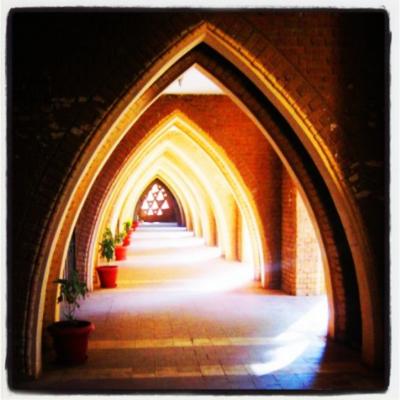
1965: The early beginnings of archaeology at the University of Khartoum
Gunnar Håland’s FAO consultancy in Darfur opened doors and in 1965 he and his wife Randi Håland moved to Khartoum, bringing their two small children with them. Randi Håland came to play a crucial role in building archaeology studies at UofK. She started as a lecturer at the newly established Department of Archaeology at UofK in 1972. A whole new syllabus and courses were established. She taught at UofK until 1975, and many Sudan scholars benefitted from her supervision. Several of her Sudanese students also took on positions in Sudan, either teaching at the UofK or at the Sudan National Museum: Ali Tigani el Mahi, Anwar Magid Osman, Mahmoud Beshir, and Habab Idriss.
All those years working within a Sudanese institution on local salaries gave the Hålands a unique opportunity to build strong networks of researchers in Sudan, with international connections. In 1988, Randi Håland was appointed professor of African archaeology, as the first female archaeology professor in Norway and the first professor of African archaeology in Scandinavia, an achievement largely based on her work in Sudan. A long-term partner in this work has been Professor Intisar El-Zein Soughayroun, who amongst others was part of the Nile Basin Research Programme (2005-2011). In 2019 she was appointed Minister of Higher Education for the transitional government.
1970: Establishing student exchange
Barth’s stay in Khartoum inspired him to establish a student exchange agreement between UiB and UofK. In 1970, Gunnar M. Sørbø, former director and now emeritus at CMI, was the first UiB student to head for Khartoum. Travelling in the opposite direction was Abdel Ghaffar M. Ahmed, an anthropology student at UofK. They developed a strong bond as colleagues and friends and came to play a central role in the history of the Bergen-Sudan cooperation.

1970s: Sudanese studies in the History Department
In 1971, Rex Seán O’Fahey joined the History Department at UiB, being recruited from Khartoum, and started a tradition of Sudanese historical studies. The first PhD was completed by Anders Bjørkelo in 1984, and the first Sudanese PhD student Ali Salih Karrar was awarded his degree in 1985. The journal Sudanic Africa was published from the History Department from 1990. Since the 1980s, numerous MA- and PhD students have completed their degrees, often based on the very substantial source collections established by O’Fahey and his successors. Rex Seán O’Fahey became the most prominent scholar in the world on the history of Darfur which is an area as large as France.
In 1993, Endre Stiansen successfully defended his PhD thesis ‘Overture to imperialism: European trade and economic change in the Sudan in the nineteenth century’ at UiB. He is currently Norway’s Ambassador to Sudan.
Historian Fadwa Taha who has been actively involved in several projects and publications originating from the Bergen-Sudan cooperation became the first female Vice Chancellor at UofK. In 2004, she received an honorary doctorate at UiB. In 2008, Taha was opponent to Elena Vezzadini’s PhD thesis. Vezzadini is currently PI for one of the few ERC grants with a Sudan focus.
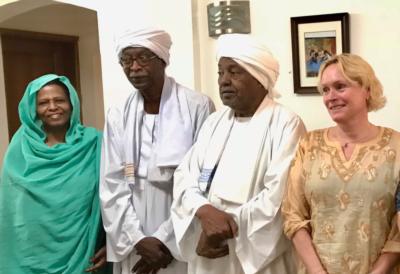
1973: First PhD at the Faculty of Social Sciences
When Abdel Ghaffar M. Ahmed completed his PhD studies with his thesis ‘Shaykhs and Followers: Political struggle in the Rufa’a al-Hoi Nazirate in the Sudan’ in 1973, he became the first person ever to get a PhD at the Faculty of Social Sciences at UiB. Also his wife Samia al-Nagar, who herself has been an invaluable partner for Sudan scholars in Bergen for decades, also relocated to Bergen. Their first son was born here, cementing the strong relationship/s they have in and to the city. During his career, Abdel Ghaffar M. Ahmed has been e.g. professor at King Saud University in Riyadh and executive director of the Organisation of Social Science Research in Eastern and Southern Africa (OSSREA), as well as Visiting Professor at the Department of Social Anthropology in Bergen and an affiliated Senior Scholar for several years at CMI.
A driving force of the Bergen-Sudan cooperation (in 2022 a new meeting room in Bergen Global was named after him), he has been central in several of the large cooperative research projects that have materialised from the close links between UiB, UofK, and CMI. Following in his footsteps were social anthropologists Sharif Harir (PhD in 1987) and Munzoul Assal (PhD in 2003), both influential figures throughout the Bergen-Sudan cooperation and both having been active far beyond the academic scope of the Bergen-Sudan research focus. Assal is a widely used commentator, by news media in both countries, on politics and developments in Sudan. Harir was for many years actively engaged in the struggle to correct human rights wrongs in Darfur.
Several Sudanese students got their MPhil from the Department of social anthropology at UiB throughout the cooperation: Salah Elshazali Ibrahim, Ghefari Elsayed, Adil Awadelseed and more recently Tamer Abd Elkareem and Mai Azzam.
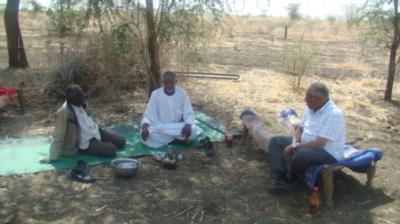
Mid-70s: Cementing the Bergen–Sudan ties
The Hålands were not the only Norwegians hired in positions locally at UofK. In the mid-70s, also Gunnar M. Sørbø who already had experience from Sudan through his days as a student at the UofK, and Rex Seán O’ Fahey who became an internationally renowned capacity on the region, and Else and Arvid Kleppe (Archaeology and English) held positions at UofK, strongly contributing to cement the close ties between Bergen and Sudan, and developing the international research network on Sudan.
With their backgrounds in social anthropology, history and archaeology respectively, these scholars contributed to a steady recruitment of both Sudanese and Norwegian scholars who have come to play a central role in research in and on Sudan.
1975: Institutionalizing the collaboration
The collaboration between Bergen and Sudan was formally institutionalised with the Savannah project in 1975. The project was funded by Norad and aimed to boost development research in the social sciences and to strengthen interdisciplinary research, to foster cooperation between researchers in Norway and Sudan, and to generate data relevant to development planning. The Savannah project was led by Gunnar Håland and Abdel Ghaffar M. Ahmed and left a lasting legacy on the Bergen – Sudan collaboration. People like Leif Manger, who did work in Kordofan in several rounds of the Savannah project, and Frode Storaas, who got involved in the Sudan collaboration documenting his work through photography and later came to do innovative work within the genre of anthropological film, remained at UiB continuing to contribute to the Sudan studies in Bergen. Several of the students who were part of the Savannah project came to be central figures in the later Red Sea Area Programme (RESAP).
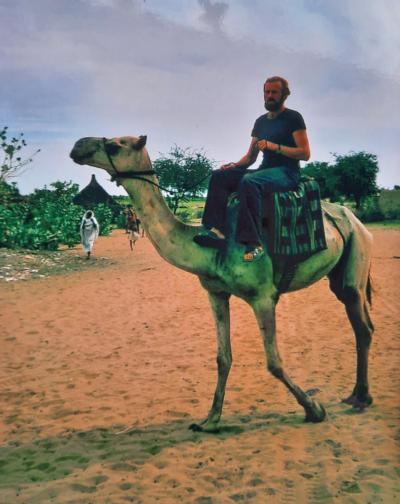
1976: CMI gets onboard
Just Faaland, former director and economist at CMI, was invited by the International Labour Organization (ILO) in consultation with the government of Sudan, to lead a comprehensive study of the Sudan economy finding a strategy to maximise employment while realizing economic growth. Faaland’s report for ILO was widely praised and proved central for CMI’s engagement in Sudan. It was a first step towards what came later to be a long-term commitment and partnership with universities in Sudan. A less known fact is that Ole David Koht Norbye, one of the first economists to work at CMI, got an assignment as financial adviser for the Sudanese government the same year. He lived in Khartoum for a year.
Early 80s: Dentistry becomes part of the collaboration
The collaboration within dentistry was established in the early eighties and is still active. The purpose was originally competence building in clinical dentistry and research collaboration with staff from UoK staying for several months at UiB, and researchers from UiB visiting UoK. Professor and then Dean at the Faculty of Medicine and Dentistry Nils Skaug was a driving force in the early phase. He was awarded an honorary doctorate at the Faculty of Dentistry at the University of Science and Technology in Omdurman. His great contributions towards establishing the library played a particular role in the appointment.
An important factor for further collaboration between the two universities was the establishment of the Quota Program in 1991. This program enabled a high number of dental students from UofK, but also from the University of Science and Technology in Omdurman to get their degree from UiB. Topics for research varied, but there was a special focus on the use of toombak, a locally produced snuff that may cause oral cancer. This led to the establishment of the Toombak Research Center at UofK, with professors Ali Idris (UofK) and Rune Nilsen (UiB) in leading roles.
The collaboration between the dentists in Bergen and Sudan continues to be fruitful and active both in terms of events and scholarly outputs. Professor Raouf Ali at UiB has organised annual open conferences at the University of Science and Technology with lecturers from UiB. Professor Ahmed Suleiman, former rector at UofK, and Anne Christine Johannessen, emerita at UiB, have also been central in this vibrant collaboration.
23 PhD candidates and 12 master’s students from Sudan have taken their degree at UiB. This has been important for building knowledge on oral health in Sudan, but the research collaboration has also been important for UiB, focusing on the global perspective of oral diseases. The quota programme closed in 2014, making funding more challenging. From 2019, the collaboration has been supported by the NORPART project ‘Establishment of joint research-based education in dentistry in Norway and East Africa’, focusing on student exchange and research, in addition to digital courses on global oral health.
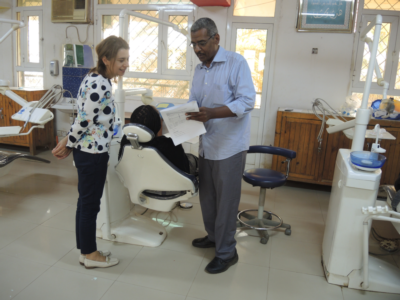
1983: Formal agreement
After 20 years of an already well-established and close collaboration, the University of Bergen and the University of Khartoum signed a formal General Agreement. The agreement covered issues like cooperation in research and post-graduate training, staff exchanges, joint research projects and mutual learning. This agreement was the first of its kind and became a model for many other similar UiB agreements with universities all over the world. During the mid-1980s, UiB was widely regarded as the world’s largest center for Sudan research outside Sudan itself.
1986: The new Sudan programme
In 1986, a new four-year Sudan programme financed by the Ministry of Foreign Affairs saw the light of day. With a wide disciplinary scope involving history, archaeology and botany, the project was administered by the newly established Centre for Development Studies at UiB, and the management of the project was placed with the departmental leaders of all the involved UiB departments.
The main goal of the programme was to contribute to competence and capacity building within the aforementioned disciplines, and UofK, the National Records Office (NRO) and UiB worked closely together through joint research and training activities.
1987: Applied research focus on the Red Sea area
The Red Sea Area Programme (RESAP) was established in 1987 and had a clear focus on applied research. It originated in Norway’s efforts to assist in the rehabilitation process after the devastating drought that hit many countries in the Sahel region hard in the early 80s. As part of Norwegian development assistance, the former Norwegian Ministry of Development Cooperation launched a call for policy relevant research on the region. Building on years of already existing cooperation, researchers from UiB and UofK joined forces. For both universities, this included the departments of geography, social anthropology and botany, hence expanding the number of disciplines that took part in the Bergen-Sudan cooperation. Students from all these departments were also involved, and the RESAP programme spawned several master’s theses and PhD theses on Sudan.
It was led by Leif Manger and Sharif Harir as well as other colleagues on the Sudan side. Manger had carried out research in Sudan since 1976 and became a central figure in the cooperation. On an overall level, RESAP aimed to improve food security and develop sustainable systems for food production. On the specific research level, the aim was to build competencies at local research institutions, to provide research that would be of direct relevance to NGOs working in the area, and to strengthen Norwegian research competencies on the region. The programme’s final report was published as a book in 1996: “Survival on Meagre Resources”.
The establishment of a pollen analytical/vegetation historical laboratory at UofK under the Sudan Programme (1986-1993) is also part of this history. Knut Krzywinski, who first got involved in the Sudan cooperation through Randi Håland, co-supervised her student Anwar Magid. Together, Krzywinski and Magid pioneered research on botanical material from Sudanese archaeological sites, leading to Magid’s PhD. In addition to the establishment of a pollen analytical laboratory at the Department of Botany at UofK, pollen analysis became part of the curriculum, taught by Gamal Elgazali (Pollen flora of Sudan) and Dafalla Ibrahim (master’s degree on vegetation history of Dinder).
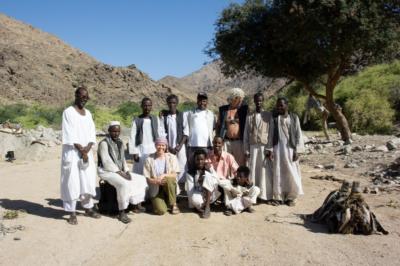
1989: The Sudan Peace Meeting
The first peace meeting on Sudan in Norway was held in Bergen in February 1989, as a joint effort between UiB (Centre for Development Studies) and UofK. It brought together politicians from the main parties as well as senior Sudanese academics. The proceedings were published in English and Arabic (“Management of the Crisis in Khartoum”, edited by Abdel Ghaffar M. Ahmed and Gunnar M. Sørbø). During the 1990s and early 2000s, there were different types of involvement by staff in Bergen (UiB and CMI) in order to help build peace in Sudan, mostly instigated or supported by the Norwegian Ministry of Foreign Affairs.
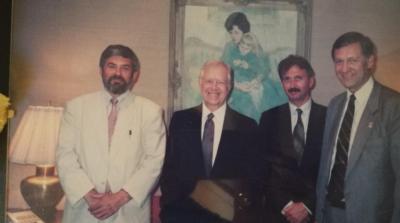
1994: Nile valley borderlands
The RESAP project made it apparent that a historical and cultural dimension was needed in the landscape studies in the Eastern Sudan. Due to the difficult political situation in Sudan the official cooperation with UofK was frozen and cooperation was continued on a personal level. Together with Richard H. Pierce and Anwar Magid, Knut Krzywinski led the project “Cultural landscape development of the Nile Valley borderland”, funded by the Norwegian Research Council. This south-south cooperation also including Cairo University and Mansoura University, documented a cultural continuity in the Red Sea Hills for more than 5000 years.
Richard H. Pierce, late Professor in Egyptology at UiB, started his career in Sudan already in 1963 and was a visiting professor at UofK in 1976. After joining UiB he became a mentor for several Sudanese PhD students in Bergen. Pierce and his wife Wenche Pierce were the only Bergen scholars participating in the Aswan High Dam Campaign of the 1960s. During his career in Bergen, he was a central figure in the compilation of the Fontes Historiae Nubiorum, the most used reference for sources pertaining to ancient Sudan.
1995: Broadening the geographical scope
In the early 1990s, NUFU (the Norwegian Programme for Development, Research and Education) funding was made available through an agreement between the Council for Norwegian Universities and the Ministry of Foreign Affairs. The East African Drylands Programme was established as a joint effort between the Department of Social Anthropology at UiB (Leif Manger) and the Organisation of Social Science Research in Eastern and Southern African (OSSREA). Through OSSREA, which at the time had Professor Abdel Ghaffar M. Ahmed as director, the UofK joined forces with Addis Ababa University, Makerere University and the University of Dar es Salaam. Through a CMI-led programme which aimed at building anthropology as a new discipline at Addis Ababa University (funded by Norad), several Sudanese professors and lecturers were also hired to teach courses in Ethiopia. Johan Helland from CMI played a crucial role in this process.
2004: Broadening the institutional scope
In 2004, the disciplinary scope of the Bergen-Sudan collaboration got even wider. Having worked with the application of remote sensing for managing water resources, Mohamed Babiker pursued a master’s degree at UiB in 1999. In his PhD work he continued to focus on the pivotal subject of water resources in the arid Red Sea area, which also happens to be his home area. He attained his PhD degree in 2004, with the thesis ‘From Tectonics to Surface Water: A Hydrogeological, Hydrological and Tectonics Reconnaissance in the Red Sea Hills, Sudan’. Since attaining his PhD degree, he has worked at the Nansen Environmental and Remote Sensing Center, thereby contributing to broaden the scope of institutions that can be said to be part of the Bergen-Sudan collaboration.
2005: Peacebuilding in Sudan: Micro–Macro Issues
Following the Comprehensive Peace Agreement between the Sudan government and the Sudan People’s Liberation Movement in 2005, CMI in cooperation with UofK, and Ahfad University for Women initiated the research and monitoring programme ‘Peacebuilding in Sudan: Micro-Macro Issues’. The programme was funded by the Norwegian Embassy in Sudan and had a duration of seven years. It addressed main challenges to building lasting peace in Sudan, and focused on the political economy of the transition, and the role of third-party engagement. Aligned with the overarching idea and tradition of the Bergen-Sudan cooperation, mutual learning and policy relevant research was at the very heart of the programme. An international publication – ‘Sudan Divided: Continuing Conflict in a Contested State’ – was published at the end of the programme. Azza Mustafa Babiker, now a postdoctoral researcher at the Institute for Humanities (HUMA) at the University of Cape Town, is one of the students who started her academic career as a master’s student in this project.
2006: The Mahmoud Salih collection arrives in Bergen
In 2006, the Bergen Global library was extended with the Mahmoud Salih collection. The rich collection of books, historical documents, prints, maps and photos is a treasure chest for anyone interested in Sudan’s history.
Salih was a businessman and philanthropist with a deeply rooted love both for his country and books, and his collection quickly reached an impressive volume. His original plan was to move the compilation to the Abdel Karim Mirghani Library & Cultural Centre which he founded in his hometown Omdurman, but this turned out to be difficult. Inspired by his close friendship with Sudan scholar and historian Anders Bjørkelo and well aware of the vibrant Sudan studies in Bergen, he asked that his collection be deposited here.
Bergen is also home to the well-stocked Rex Seán O’Fahey collection. When O’Fahey retired in 2013, he left his rare collection of books and material collected over his long research career to the University of Bergen Library. The SNAC project is now supporting the Special collections at the University of Bergen Library in digitalising this collection. Researchers in Bergen have also played a crucial role in preserving other parts of Sudanese history for future Sudan scholars. Headed by Bjørkelo, and in cooperation with the Sudanese Department of Information, the TV archives of the Sudanese broadcasting company SNBC, were digitalised in a three-year project completed in 2016. The digitalisation project was funded by the Norwegian Embassy in Khartoum.
The Sudan collection at the University of Bergen Library encompasses a vast archive of photos and archival materials collected by Sudan scholars involved in the Bergen-Sudan collaboration ever since the start in 1963. Parallel to the documentation of Sudan’s rich history through photos and documents, librarians and Sudan scholars have done a mammoth effort building and extending the library’s collection of books on Sudan. The collected material gives unique insights into both Sudan and the long-standing cooperation between academics in Bergen and Sudan, and is available to the public through the University of Bergen Library website.
2007: First female Sudanese PhD student from UofB
When Howaida Faisal Abd El Rahman handed in her thesis on the molecular taxonomy of acacia trees in the Red Sea Hills of Sudan and Egypt, she became the first female Sudanese student to get a PhD degree from UiB. She was supervised by one of the early pioneers of Sudan studies in Bergen, Knut Krzywinski. The data she collected for her PhD, during two periods of fieldwork, required her to wander and camp in the desert for several weeks. She also got her master’s degree in oral health from UiB under the supervision of the late Professor Nils Skaug whom at the time recently had taken initiative to the Bergen-Sudan collaboration in dentistry. In many ways exemplifying in person the multi-disciplinarity of the Bergen-Sudan collaboration and the vast networks that have grown out of it, she is now the administrative coordinator for the Bergen Summer Research School.
2008: Participation in the Merowe Dam Archaeological Salvage Project
In connection with the building of the Merowe dam, the Sudanese government launched an appeal for salvage archaeological campaigns. The then PhD student of Randi Håland, Henriette Hafsaas, participated in the campaign as a member of the Sudan Archaeological Research Society (based at the British Museum in London) expedition. Together with Alexandros Tsakos, head of the Manuscript and Rare book collections at the University of Bergen Library and responsible for the Sudan archive at UiB, they initiated the Greek-Norwegian Archaeological Mission on Sai Island, the last archaeological project in Sudanese Nubia launched from UiB. In this project focusing on the medieval past of Sai, they collaborated closely with Sami el Amin, the guards of various sites with relevance for the medieval past, as well as representatives from the villages on the island, so that their archaeological activities became of direct relevance to the local communities.
2010: ARUS in Eastern Sudan
Assisting Regional Universities in Sudan (ARUS) was run jointly by the Department of Social Anthropology at UiB, Ahfad University for Women and UofK in partnership with three regional universities in Eastern Sudan: Gedarif, Kassala and Red Sea. The programme was initiated and led by Leif Manger and Abdel Ghaffar M. Ahmed, and was financed by the Norwegian Ministry of Foreign Affairs as a Norwegian contribution to the peace agreement for Eastern Sudan from 2006. It aimed to assist regional universities in the production of knowledge of high importance to reconstruction after civil war. The programme included both staff and students at all participating universities in Sudan.
2010: Acacia project in Eastern Sudan
The Acacia project was an international research project funded by the Norwegian Research Council, headed by Gidske L. Andersen, one of Knut Krzywinski’s PhD students. During this project, that studied land use, traditional knowledge and long-term dynamics of arid ecosystems, a close collaboration was established with the Red Sea University. This revitalized the botanical and geographical research in the Bergen - Sudan cooperation that was initiated by Krzywinski and Turid Hammer (Dep. of Geography) already during RESAP. Since then, the link to RSU has been strengthened and fostered several joint publications in international journals as well as new cooperation.
2011: Paving the way for political science
When Liv Tønnessen defended her PhD in 2011 with Atta al-Battahani at UofK as her mentor, she was the first and only political scientist at UiB to write her doctoral thesis on Sudan. Through various CMI research projects funded among others by the Research Council of Norway, the Carnegie Foundation, and the Norwegian Ministry of Foreign Affairs she has researched gender and politics in Sudan working closely with Sudanese partners throughout the years, and especially independent researcher Samia al-Nagar. Al-Nagar is a renowned feminist activist, and has a network reaching far beyond academia, having worked for the UNDP and cooperated with several NGOs.
The projects have involved academic collaboration with the regional Institute for Gender, Diversity and Rights at Ahfad University for Women, and the Development and Research Institute at the University of Khartoum. Several scholars have their background in these projects which have included master and PhD scholarships in Sudan, among them Reem Abbas and Lamya Badri.
2013: ARUSS in Sudan and South Sudan
Peacebuilding in Sudan: Micro-Macro Issues and ARUS were merged into ARUSS, including both Sudan and South Sudan It was an academic collaboration between CMI, the Department of Social Anthropology at UiB, Ahfad University for Women, UofK and nine regional universities in Sudan and South Sudan. These were: Gedarif, Kassala, Red Sea, Nyala, Dilling and Blue Nile in Sudan and Bahrel-Ghazal, Rumbek and Malakal in South Sudan. The academic collaboration between universities and academic institutions was seen as an important avenue for maintaining and strengthening positive relationships and building competencies. The aim was to produce new knowledge of relevance for building sustainable peace in and between Sudan and South Sudan. It was funded by the Royal Norwegian Embassy in Khartoum 2013-2018. It was headed by Gunnar M. Sørbø, Leif Manger and Abdel Ghaffar M. Ahmed. With an overarching vision of expanding and strengthening competencies, the programme included 10 master scholarships at Ahfad to female students from marginalised areas of Sudan.
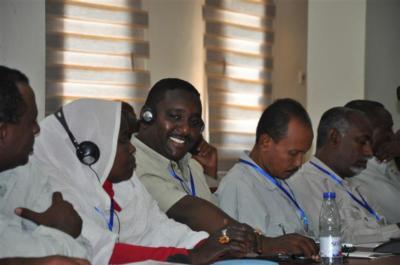
2013: Researching borderland dynamics
In 2013 the universities of Bergen, Khartoum, Addis Ababa, and Makerere, and CMI embarked on a new joint effort. The project was funded by Norad through their NORHED (Norwegian Programme for Capacity Development in Higher Education and Research for Development) programme and led by the Department of Social Anthropology at UofK. The ‘Borderlands dynamics: anthropological competence building in East African universities’ project focused on borderland topics like land disputes, natural resource conflicts and trafficking, hence responding to a growing need for more knowledge about issues that were becoming increasingly prominent in the region. The project aimed to strengthen both research and teaching capacities in the anthropology departments in Addis Ababa, Khartoum and at Makerere. Empowering borderland communities in Ethiopia, Sudan and Uganda to voice their concerns towards policy makers was also at the heart of the project.
The project provided scholarships for postdoctoral researchers, PhD, and MA students in Khartoum, Addis Ababa and Makerere, and the scholars involved published extensively from the project. The project was coordinated by Leif Manger and Munzoul Assal.
2018: Offering trauma psychology
One of the long-standing partners of the Bergen-Sudan cooperation, the Ahfad University for Women, has a long tradition of providing mental health and psychosocial support care and capacity development, and also has a trauma centre that focuses on populations exposed to emergencies and trauma. Since 2018, the Ahfad Trauma Clinic Centre and Crisis Psychology at UiB have been co-operating to strengthen the response to mental health and psychosocial needs in Sudan, partnering with PLAN Norway and the Children and War Foundation. Shahla Eltayeb at Ahfad, Ragnhild Dybdahl and Unni Heltne from UiB have been driving forces behind the collaboration that has included various joint studies and capacity development. Over the past years there have been workshops on numerous topics, such as research ethics, early childhood development, trauma reactions and interventions, sexual violence, global mental health, scalable interventions, self-care for helpers, psychological first aid, and education and mental health jointly organised by Ahfad and CCP and partners.
The need for mental health and psychosocial support services in Sudan has far exceeded the services that are available. This has been addressed by a focus on low-threshold interventions, where support for children has been made available in local communities and local services through task sharing. Teaching Recovery Techniques (TRT) have been widely promoted through numerous workshops and trainings.
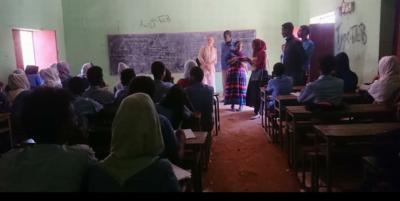
2018: ARUS in marginalized areas of Sudan
The third phase of ARUS was an academic collaboration between CMI, UiB and national and regional universities in Sudan. The project produced collaborative research and developed training resources on development challenges deemed important by partners in marginalised areas in Sudan with the aim to influence policy and practice. As part of the project, research was carried out on a range of topics including women’s empowerment, youth mobilization, refugees, border control and human trafficking, food security and urbanisation. Hosted by Ahfad University for Women and in close collaboration with UofK, the project included academic collaboration with seven regional universities. These were Gedarif, Kassala, Red Sea, Nyala, Dilling, Blue Nile and Sennar. The project was funded by the Royal Norwegian Embassy in Khartoum 2018-2022. It was headed by Liv Tønnessen and Abdel Ghaffar M. Ahmed. Again, a project based on the close links between Bergen and Sudan yielded several academic degrees. The project included five master scholarships at Ahfad university for Women to students from marginalised areas of Sudan and two scholarships to master students at Kassala University.
The ARUS programme had tangible effects reaching beyond the programme. Thus e.g. long-time member of the ARUS team, Ibtisam El Jack, was appointed the first female Vice Chancellor ever at Gedarif University. She explicitly emphasised ARUS and the experience she got through the programme as a key factor in growing her career.
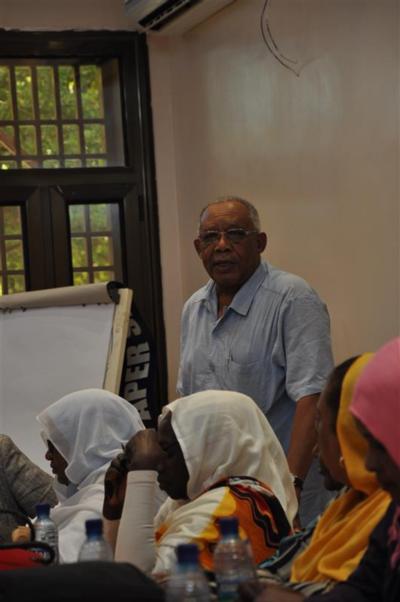
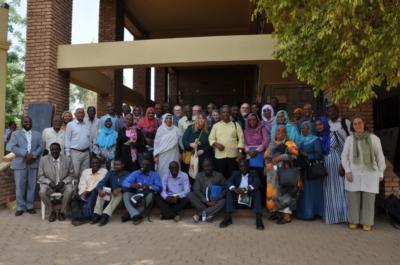
2021: Expanding to Juba
In 2021, another NORHED project started, involving the four universities which participated in NORHED I, and in addition a new partner: the University of Juba in South Sudan. This second project ‘Refugees on the move: South Sudanese refugees in Ethiopia, Sudan, and Uganda’ sought to understand the regional aspects of the flow of refugees from the war-torn new nation state of South Sudan. It had a two-fold aim: To strengthen research and teaching capacities in order to contribute high quality research on the field of refugee studies, and to contribute to a better foundation for sustainable policy making. The project was coordinated by Munzoul Assal.
The two NORHED projects not only cemented the ties between Bergen and Khartoum, but also brought in new partnerships and strengthened South-South cooperation and partnerships.
Strengthening library services at the University of Juba was also part of the picture in this period. Through the Juba University Library Automation Project (JULAP), the University of Bergen Library contributed to establishing a library service with fully trained staff in Juba offering relevant literature for research and education.
2023: SNAC (Sudan–Norway Academic Cooperation)
The current Sudan-Norway Academic Cooperation (SNAC) builds on the 60 years of close cooperation and partnership between scholars and research institutions in Sudan and Bergen. It is a collaboration between CMI, UiB, UofK and seven regional universities, including Gedarif, Kassala, Red Sea, Dilling, Blue Nile, Sennar and Nyala. The project is co-headed by Liv Tønnessen and Munzoul Assal.
This project has a particular focus on bringing Sudanese scholars to the forefront of national and international academic and policy discourses about Sudan. As the project was about to start, war broke out and all higher research institutions in the country closed. With many of our Sudanese colleagues at risk and many having fled the country, we are working hard to readjust the project in ways where we can stand in solidarity with our colleagues. What the future will bring is still unclear. Yet, we are hopeful that we can carry out the project as envisioned and above all for the slogan of the Sudanese people’s December revolution ‘Freedom, peace and justice’ to become reality at last.
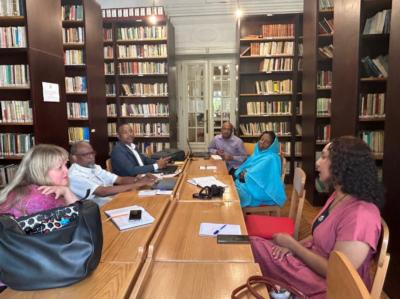
Sudan Symposium in Bergen
PARTNERS
OTHER PARTNERS
El Dalang University
University of Blue Nile
عن الجامعه - جامعة القضارف University of Gadarif
University of Nyala


